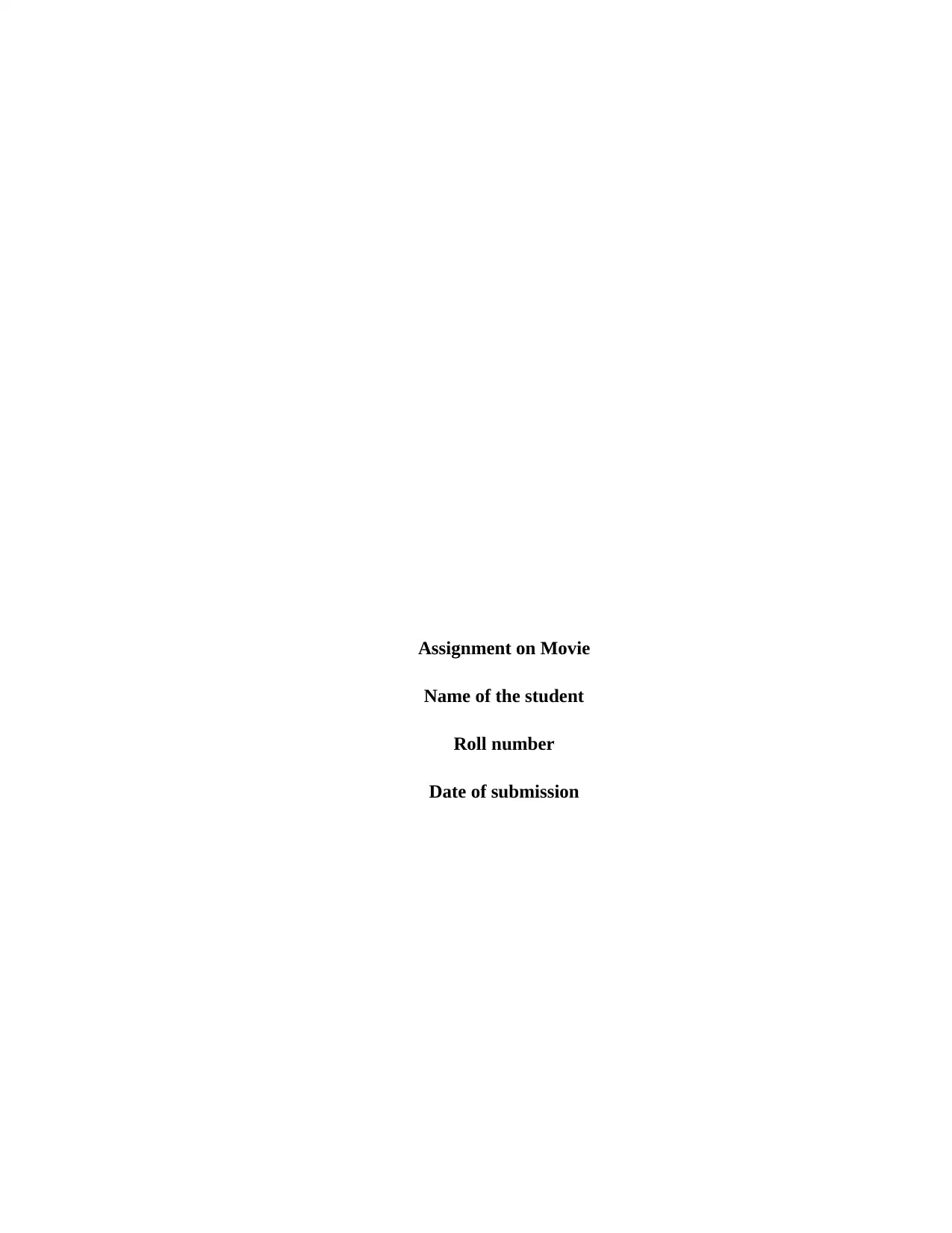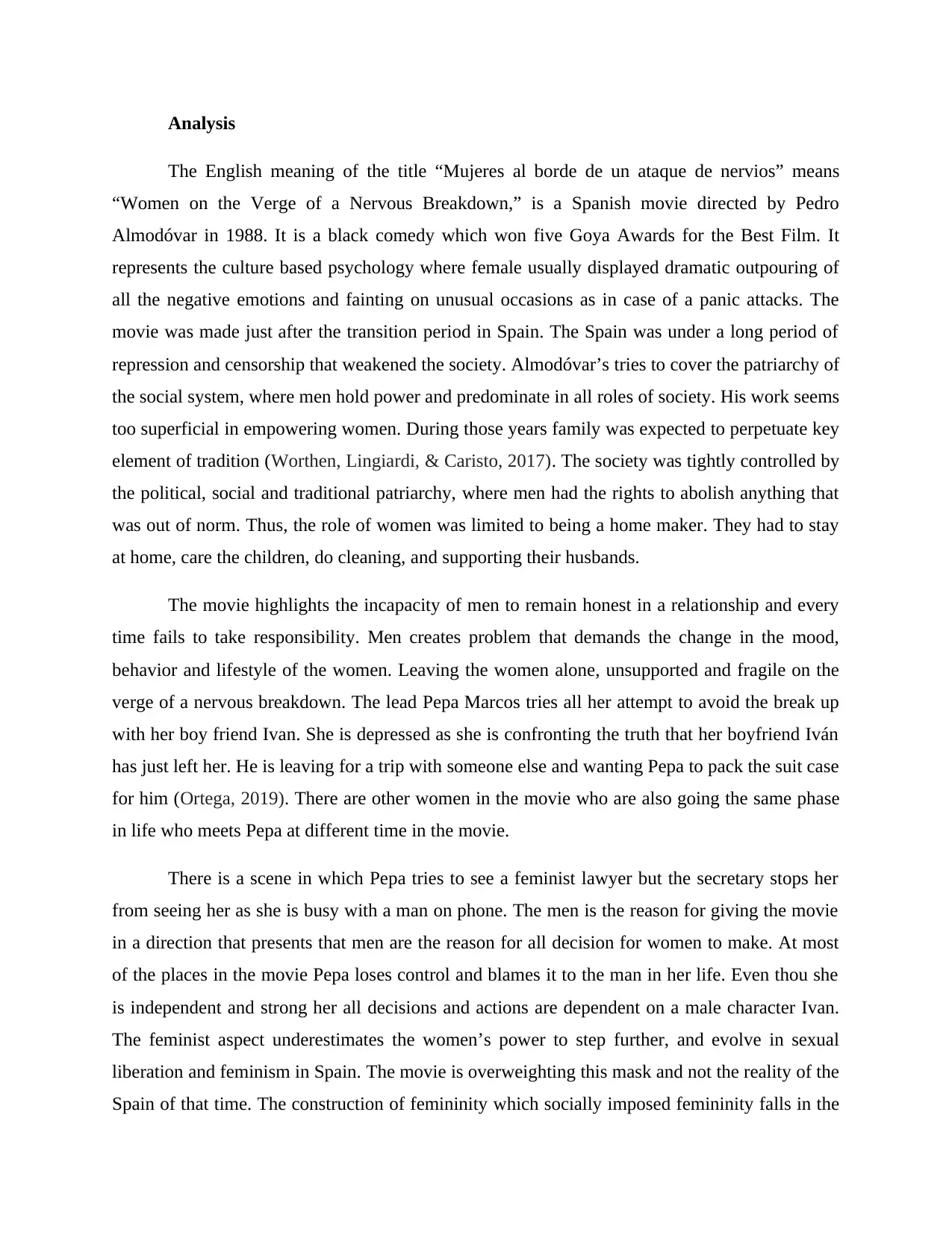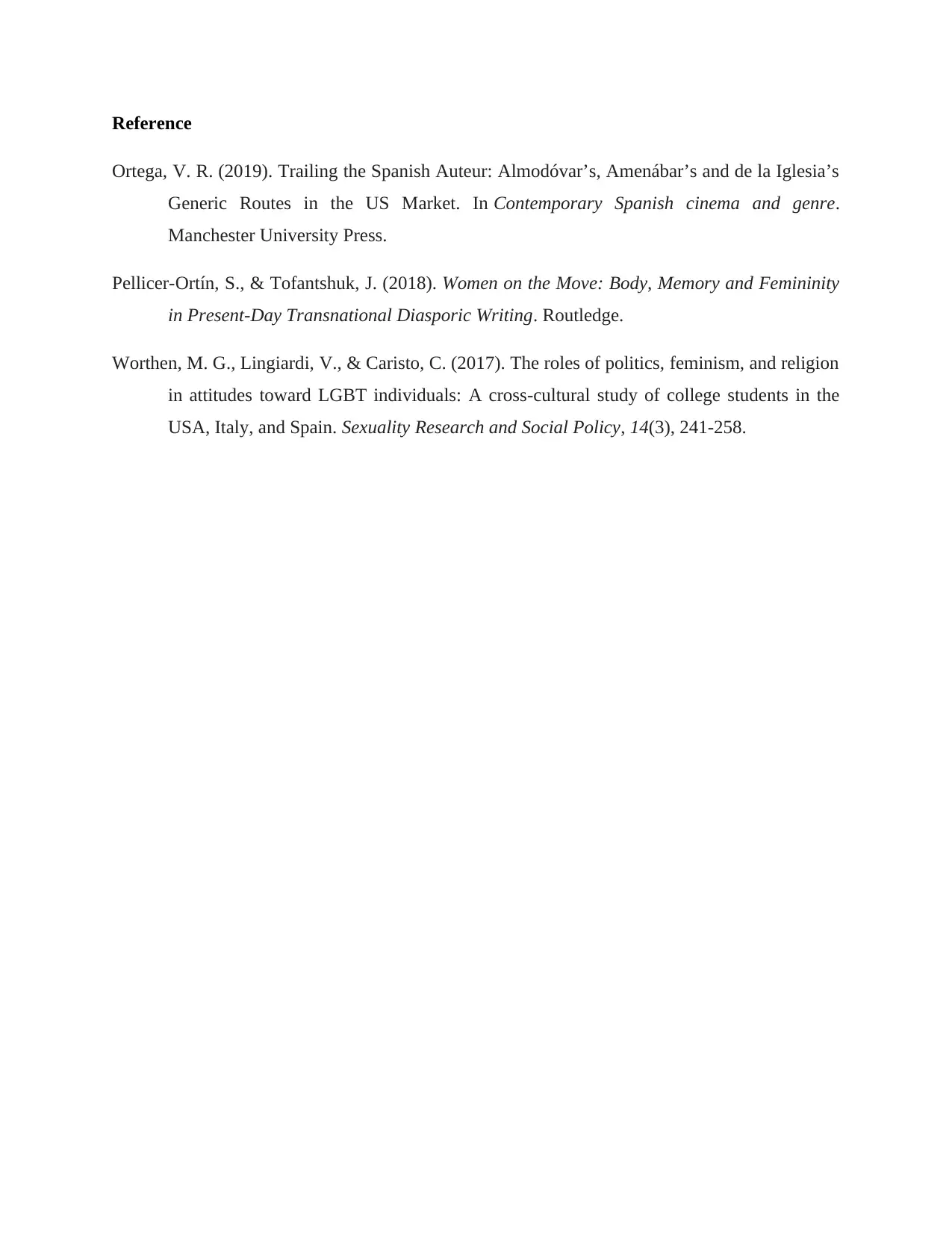Analysis of Almodóvar's 'Women on the Verge of a Nervous Breakdown'
VerifiedAdded on 2022/09/26
|4
|749
|27
Essay
AI Summary
This essay provides an analysis of the Spanish film "Women on the Verge of a Nervous Breakdown," directed by Pedro Almodóvar. It explores the film's themes, including the portrayal of women in a patriarchal society and their emotional responses to the actions of men. The essay examines the cultural context of the film, made shortly after Spain's transition period, and how Almodóvar challenges societal norms and expectations of women. It delves into the characters, particularly Pepa Marcos, and the challenges she faces in relationships, highlighting the film's exploration of feminist perspectives, the limitations placed on women, and the impact of male actions on female lives. The analysis also touches on the film's comedic elements and its reflection of the social dynamics of the time, supported by references to relevant scholarly works.
1 out of 4








![[object Object]](/_next/static/media/star-bottom.7253800d.svg)